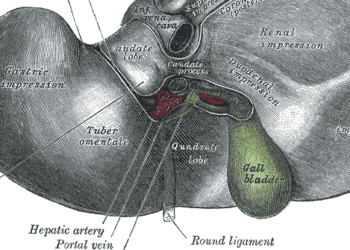Higher risk of type 2 diabetes associated with LDL-C-lowering genetic variants
1. LDL-C-lowering alleles at the NPC1L1 locus are directly associated with an increased risk of type 2 diabetes, but a lower risk of coronary artery disease.
2. LDL-C lowering alleles at HMGCR and PCSK9 loci are similarly associated with coronary artery disease and type 2 diabetes.
Evidence Rating Level: 1 (Excellent)
Study Rundown: Many studies have observed relationships between the safety and efficacy of certain drugs and specific genetic polymorphisms existing in a patient. For instance, LDL-C-lowering alleles in HMGCR, the molecular target of statins, have been associated with a higher risk of type 2 diabetes. This study sought to identify which LDL-C-lowering alleles across several important molecular targets (including NPC1L1, HMGCR, PCKS9, ABCG5/G8, and LDLR) are associated with an increased risk of type 2 diabetes.
A meta-analysis of genetic association studies identified 50 775 individuals with type 2 diabetes and 270 269 controls. Results showed an association between a higher risk of type 2 diabetes and LDL-C-lowering alleles at the NPC1L1 locus. Further polymorphisms at the HMGCR and PCSK9 were also found to be associated with a higher risk of diabetes. A similar trend was not identified with polymorphisms in or near the ABCG5/G8 and LDLR genes. Risk of coronary artery disease was found to be inversely associated with all the genes studied.
Overall, this study suggests that expression of LDL-C-lowering genetic variants is associated with a higher risk of metabolic disturbances such as type 2 diabetes. This relationship may also be present in drugs that lower LDL-C through similar mechanisms. Future studies should compare the long-term effects of LDL-C-lowering alleles in individuals as presented in this meta-analysis, and those effects from short-term pharmacological inhibition of a molecular target. The current study provides important implications for the safety and efficacy profile of drugs in development.
Click to read the study in JAMA
Relevant Reading: Pharmacogenetic meta-analysis of genome-wide association studies of LD cholesterol response to statins
In-Depth [meta-analysis]: A total of 50 775 individuals with type 2 diabetes and 270 649 controls from the European Prospective Investigation into Cancer and Nutrition (EIC)-InterAct study, the UK Biobank study, and the Diabetes Genetics Replication and Meta-analysis (DIAGRAM) were included in this meta-analysis. Genetic association from the Global Lipids Genetics Consortium was utilized to obtain LDL-C association estimates. Association of LDL-C lowering alleles with coronary artery disease, glycemic traits and anthropometric traits were obtained from the Coronary Artery Disease Genome wide Replication and Meta-analysis (CARDIoGRAM) plus the Coronary Artery Disease (C4D) Genetics (CARDIoGRAMplusC4D), Meta-Analysis of Glucose and Insulin-related traits Consortium (MAGIC) and Genetic Investigation of Anthropomorphic Traits (GIANT) Consortium. Primary analysis of the study included studying the association of 2 LDL-C-lowering genetic variants near NPC1LC with type 2 diabetes. LDL-C-lowering alleles near other molecular targets including HMGCR, PCSK9, ABCG5/G8, and LDLR were also studied. Mendelian randomization statistical methods were used to estimate associations of LDL-C-lowering genetic variants and outcomes. LDL-C-lowering alleles at NPC1L1 were statistically significant for increased risk of type 2 diabetes (odds ratio 2.42) per genetically predicted reduction of 1mmol/L (3.7 mg/dL) in LDL-C.
Image: PD
©2016 2 Minute Medicine, Inc. All rights reserved. No works may be reproduced without expressed written consent from 2 Minute Medicine, Inc. Inquire about licensing here. No article should be construed as medical advice and is not intended as such by the authors or by 2 Minute Medicine, Inc.







